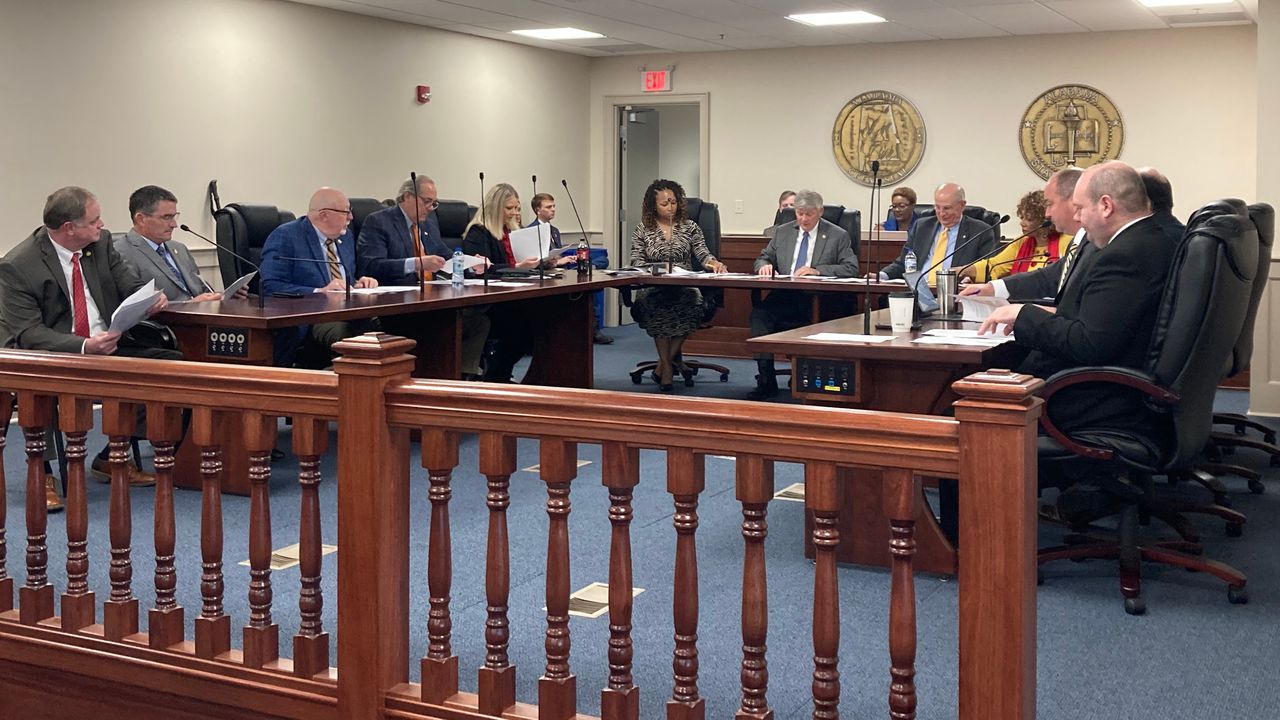Hospitals getting less than one-third of requested federal pandemic funds
A plan for Alabama to allocate $1.06 billion in federal dollars for pandemic recovery provides $100 million in reimbursements to hospitals, but that’s far short of what hospitals requested.
Officials with the Alabama Hospital Association said hospitals asked for $375 million from the state’s second and final round of funds from the American Rescue Plan Act (ARPA), passed by Congress two years ago to help states recover from the economic and healthcare costs of COVID-19.
“While we are very grateful for any appropriation, we fear that that amount will not be enough for urban or rural — it’s not just a rural issue — to keep them afloat while we try to figure out other ways to bolster their revenue to be able to sustain the healthcare delivery system over the coming years,” AHA Deputy Director Danne Howard said.
The AHA funded a pandemic impact study that found Alabama hospitals lost $1.5 billion during the pandemic, an amount that takes into account federal money already received. Half of the state’s hospitals operated at a net loss last year, up from 22 percent that were operating at a loss before the pandemic. The AHA says 14 hospitals have closed in Alabama since 2011.
The plan for how Alabama will use the last round ARPA money continued to advance through the State House today. The Senate General Fund budget committee approved the bill this morning. Twelve senators on the committee voted for the bill and three abstained. The House of Representatives passed the bill Tuesday by a 102-3 vote. Lawmakers could give the bill final passage as early as Thursday and wrap up the special session called by Gov. Kay Ivey.
The bill allocates $400 million for water and sewer projects; $339 million for healthcare, including the reimbursements for hospitals and $100 million in reimbursements for nursing homes; $260 million to expand access to high-speed internet; and $55 million to fund grants for community programs like senior citizen services, food banks, and housing assistance, among others.
The committee this morning added an amendment by Sen. Chris Elliott, a Republican from Baldwin County, to allow up to $200 million of the water and sewer funds to be used for stormwater projects. Elliott’s amendment also requires local governments to provide a 35 percent match to access one portion of the money.
Sen. Greg Albritton, R-Atmore, the Senate sponsor of the bill and chair of the General Fund committee, said lawmakers settled on the allocation for hospitals after a great deal of discussion.
“It wasn’t an easy decision,” Albritton said. “It was being argued even as late as 8:15 this morning. It’s the best we could do with the circumstances we have and it’s what the consensus feels like we can do.”
Albritton said the funding for hospitals has been one of a number of tough choices. “When you’re spending over a billion dollars, you’re not going to satisfy everybody,” Albritton said. “In fact, I always tell folks there’s only enough money to make more people mad than happy.”
Overall, Albritton said he believes the way the federal funds are being spent, including the allocations for water and sewer projects, will have long-term benefits for the state.
“We’re looking at significant, significant infrastructure changes here in Alabama,” Albritton said. “I’m excited about it. I think it’s the best thing for Alabama. It’s one of the few things we’re doing that will have generational differences for our state.”
Howard said hospitals across the nation are struggling in the wake of the pandemic but she said Alabama’s are in the most difficult position because of several factors. Alabama hospitals provide services to a population that has a high proportion of people who are uninsured. Alabama also ranks high in chronic health problems such as obesity and diabetes.
“We had hospitals operating in the red pre-pandemic, and their margins were already negative and were already fragile,” Howard said. “The pandemic exacerbated that and what little bit of reserves there may have been have been long gone. And that is even with the federal assistance from the CARES Act and from the previous ARPA appropriations. They are still in the hole.”
